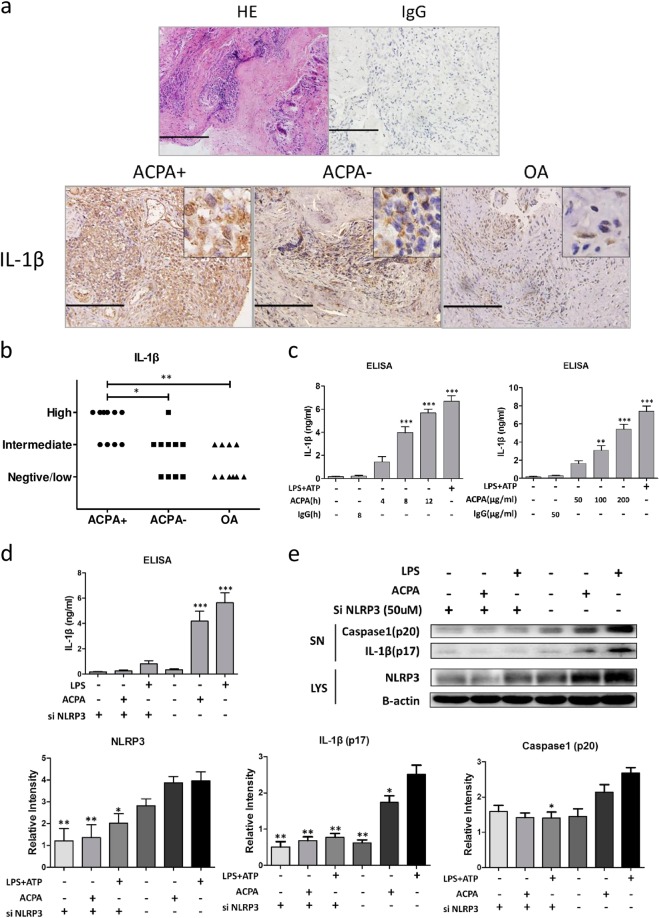Fig. 1.
Anti-citrullinated protein antibodies (ACPAs) promote interleukin (IL)-1β production in an NLRP3-dependent manner. a Representative tissue sections from ACPA+ rheumatoid arthritis (RA) patients, ACPA− RA patients and osteoarthritis patients analyzed by immunohistochemical (IHC) methods to determine the expression of IL-1β. In addition, representative images of synovial sections subjected to hematoxylin and eosin staining and IHC staining with irrelevant rabbit immunoglobulin G (IgG) as the isotype control are shown. Scale bar = 100 μm. b Statistical results of IL-1β staining. *p < 0.05 and **p < 0.01. c IL-1β production by peripheral blood mononuclear cell (PBMC)-derived macrophages was measured by enzyme-linked immunosorbent assay after treatment with ACPAs or IgG (purified from serum of healthy individuals) for the indicated durations and at the indicated concentrations. **p < 0.01, ***p < 0.001 (all other groups vs. the first group). d PBMC-derived macrophages were transfected with NLRP3 small interfering RNA (siRNA) or control siRNA for 48 h before ACPA or lipopolysaccharide (LPS)/ATP treatment. After stimulation with ACPAs for 8 h, IL-1β production was measured. ***p < 0.001 (other groups vs. the first group). e Representative western blot results and statistical analysis of protein expression in PBMC-derived macrophages transfected with NLRP3 siRNA or control siRNA and treated with ACPAs or LPS/ATP. Caspase-1 (p20) and IL-1β (p17) levels in the supernatant and NLRP3 levels in the cell lysate were assessed by western blotting. Each experiment was performed at least three times. SN supernatant, LYS cell lysate

